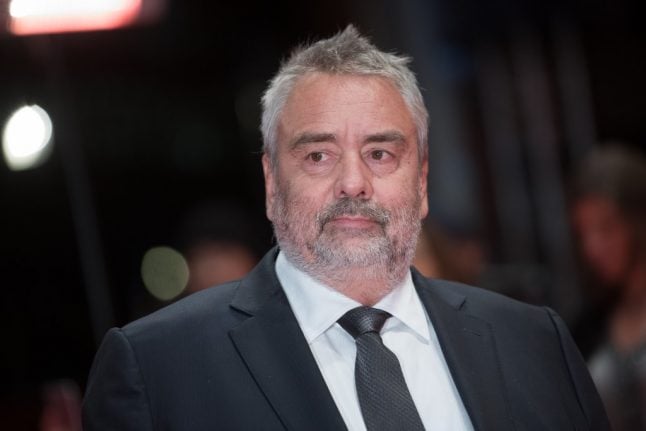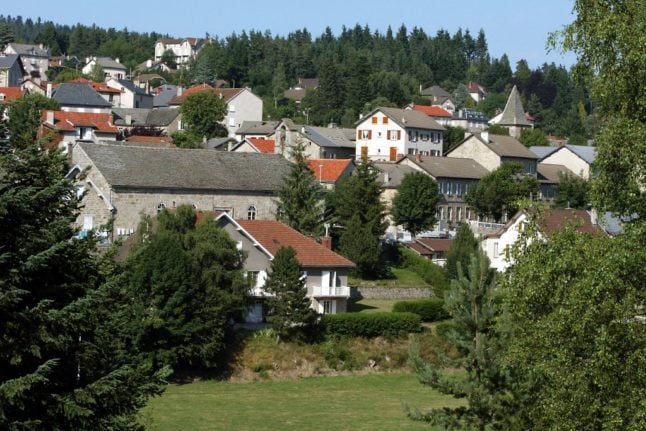Hunters in the Orne area accuse the maker of the The Fifth Element and Nikita of defying the national hunting plan by allowing deer to multiply on his sprawling estate, damaging the livelihoods of neighbouring farmers.
They are demanding that Besson pay around €130,000 in compensation for the damage caused by the deer – the amount the local hunters federation say it has had to compensate the farmers since 2014 for failing to keep their numbers down.
READ ALSO All you need to know about France's hunting season
Besson, who bought the estate in 1998 and used the red-brick chateau on the land to house a post-production studio, was not in court for the hearing but his wife and daughter were present, an AFP reporter confirmed.
In an interview with Le Parisien newspaper in mid-September, the 60-year-old film-maker accused the hunters of being “out of step with history.”
“In the midst of the debate over the environment and biodiversity, which affects the whole world, hunters in the Orne region are asking me to kill deer that pass by my house?! Should I have my children watch from the balcony?” he asked.
The case is the latest to pit French people who move to the countryside, or have second homes there, against rural dwellers who accuse them of failing to respect local customs.
In the most prominent such case recently, the owner of a French rooster named Maurice was taken to court in September by a couple with a holiday home next door over his lusty dawn crowing.
Maurice emerged victorious from the battle waged on the Atlantic island of Oleron, which made headlines worldwide.
READ ALSO City dwellers are incapable of living in the countryside' – why anger is growing in rural France
In the Besson case, the hunters' lawyer Charles Lagier argued that whether the director supported hunting or not was irrelevant.
“He doesn't hunt. Fair enough, we're in a democracy, that's his right. But either he accepts the (national) hunting plan, or he pays the price,” Lagier told the court on Monday.
Besson's property is part of the huge Saint-Evroult forest situated outside La-Trinite-des-Laitiers, two hours west of Paris.
In 2016, local authorities ordered measures to try scare some of the deer off Besson's land, citing the damage caused to surrounding farms and the threat to passing motorists of crossing deer.
But they also ruled that the 300 deer counted on both Besson's land and the wider Saint-Evroult forest were not excessive.
Local farmers have collected evidence of the damage caused to cornfields by deer straying from Besson's estate.
The director's lawyer Jean-Marc Descoubes argued that the hunters had failed to prove that it was the deer on his land that were causing the damage.



 Please whitelist us to continue reading.
Please whitelist us to continue reading.
People shooting anything that moves, be it wild animals, song birds, dogs on leashes or even people in cars, out walking or in their own garden, is hardly a ‘local tradition’. Rationally it can be called many things as can those taking part, but I won’t go on.
As usual, it is these violent members of society that keep their primitive blood lusts justified by “traditon” and by their actual or implied threats against those who abhor their behaviour.
Really. I suppose that you are both against the culling of Wild Boar that cause untoward damage to farmland. France has a huge overpopulation of wild boar and each year circa 600,000 need to be culled. This is not some primitive blood lust, this is sensible control of a pest
I can only speak for myself. Unfortunately, we humans in pursuit of our own needs have upset the balance of nature and to maintain some sort of balance culling is a necessary evil. What’s more, shooting is probably the best, least unpleasant method of doing it. However, I don’t think the majority of ‘hunters’ are motivated by a sense of keeping equilibrium in the ecology of the countryside. Going on my father’s motivation, reflected in most hunters I have met, it is a day communing with nature (as they see it) and satisfying the primitive instinct to hunt and kill. Many regard shooting animals as a sport supported by magazines and associated paraphernalia to encourage them, though how any intelligent animal can consider it a sport to so violently injure another sentient animal that they die, painfully and fearfully from the injury and physical trauma inflicted (checkout gunshot wounds on the internet) leaves me dumbfounded. Others, such as farmers may be motivated, understandably in my opinion, by anger and revenge or a desire to protect their investment and hard work. There are some around where I live but mostly it’s the sporting type that stalk and kill for the thrill of it, leaving in their wake, used toilet paper, cigarette cartons, bottles and rubbish, endangering other humans, including themselves and rendering the countryside a no go area for the non hunting community who are the majority. It may have been traditional but that is a poor excuse by the mentally poor who can come up with nothing better.
A formal, controlled cull on specific well publicised dates by professionals (soldiers perhaps?) would be a better solution than the chaos of ad hock hunting parties of atavistic old men in ill defined areas.
A well stated comment Nick-nack but will, unfortunately, fall on deaf ears.